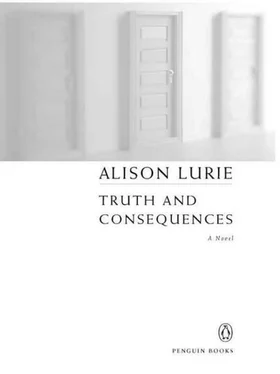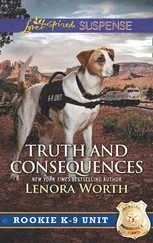“Well—” Half doubting, wholly charmed, Alan had arranged to have photographs made of half a dozen drawings and the two follies on his property, and Delia had sent them off.
Or so she had said. But since then, nothing. Over two weeks had passed and Alan had hardly seen her again, and never alone, until twenty minutes ago, when she had hastened by his office with her face averted, not responding to his greeting. Probably she was avoiding him. Either she hadn’t heard anything from the gallery, or his slides had been rejected and she was reluctant to tell him so. That had been Jane’s opinion when he mentioned the matter to her. She didn’t like to say this, she told Alan, but she would be surprised if anything came of Delia Delaney’s proposal. Yes, of course Delia had encouraged him, Jane said; it was the sort of thing she did. Already she had encouraged and then disappointed several people at the University.
When Alan said he found this hard to believe, Jane gave examples. “She promised to go to lunch with Lily Unger and some of her friends, and then canceled at the last moment, said she had a headache. She’s persuaded Susie that Charlie Amir is in love with her, which of course he’s not. And she flatters all the Fellows and anyone else who turns up and promises to read their books or manuscripts, but then she never does, and when people try to reach her she isn’t there. She’s already missed one of our weekly lunches and walked out of the other two early. If you ask me, she’s here to collect her salary and do as little as possible.”
It was clear to Alan that Jane had it in for Delia; he just didn’t know why. It was unlikely that she should be jealous—that had never been her nature, and anyhow he was in no condition to be unfaithful. He had never shown any enthusiasm for Delia’s writing, and when Jane had recently referred to her most famous book as “pretentious imitation fairy tales,” he hadn’t protested. But it wasn’t just that Jane didn’t like Delia—she also didn’t like his follies and ruins, especially now.
She had been doubtful about this project from the start, and now her doubts had increased. In her opinion, Alan would probably do best to keep that side of his work quiet for a while. There were a lot of people, especially in New York, who would be upset if they saw paintings like his. When Alan suggested that they might be seen as ironic and amusing, Jane wasn’t convinced. “There are some things you can’t make fun of,” she had repeated.
In spite of Jane,Alan was still sure—well, almost sure—that Delia really had liked his work and that she had tried to interest the gallery in New York. He considered going across the hall and saying that if her friend didn’t want it, it wasn’t her fault, and he was grateful anyhow. He didn’t want to become another pathetic claimant on Delia’s warmth and generosity of spirit. Everyone at the Center now continually vied for her time and attention, and it was embarrassing the way Susie and Mrs. Unger and the other Fellows and visitors and guests crowded around her in the hall and at lectures and at the weekly lunch meeting, maneuvering to sit next to her, smiling and staring and posturing and complimenting and, almost always, asking for favors. No wonder that sometimes at lunch she would excuse herself early and flee half fed to her office. Still, he had waited long enough.
Sitting and then standing slowly, with pain and difficulty, he went to look across the hall. Delia’s tall paneled door, as usual, was shut. He knew now that often she did not open it when someone knocked, and only rarely answered her phone. He himself had never knocked or phoned: he did not want to be one of the intrusive people who at all hours of the day attempted to invade Delia’s privacy and interrupt her creative work.
Yet as he started back, Alan heard a strange and disturbing sound: like someone breathing hard, gasping or wailing. At first he thought it was the autumn wind in the tall white pine tree outside his window; but the sounds weren’t coming from there. When he turned again to Delia’s door, which was in fact not quite shut, he could hear them more clearly. Someone inside was half sighing, half sobbing.
“Delia?” he called softly. There was no answer. Slowly, Alan pushed the door open a few inches.
At first the room seemed empty: the heavy dark-red velvet drapes were drawn, allowing only a few slashes of late September sunlight to carve up the gloom, and there was no one at the desk. Then he saw something like a bundle of crumpled white washing huddled on the sofa. Delia Delaney was lying there, staring at him silently.
Or was that really Delia? She seemed somehow wan and limp, more clothes than body; it was as if all her life had gone into the great bush of red-gold hair.
“Go away, would you, please?” she said in a half-drowned voice.
“I’m sorry.” He began to back out of the room.
“Wait. Who is it? Alan? Is that you?”
“Yes. What’s the matter? Are you all right?”
“No. I’m getting a migraine. Or I should say, a migraine is getting me.” She gave a thin imitation of a laugh.
“I’m sorry,” he repeated. “Shall I go away?”
“Yes—no. I’ve just taken something for it. It works about half the time if I take it soon enough, but it always makes me a little dizzy, a little drunk.” She laughed lightly, sadly. “If I’m lucky it’ll kick in after ten, fifteen minutes. I’d like to pass out until then, but I won’t. Come and talk to me, distract me.” Her voice was low, tremulous.
“I—All right.” Alan crossed the darkened room and stood beside the sofa. Pale and ill as Delia looked, with great blue-violet smudges under her eyes, she was still voluptuously beautiful.
“Tell me a story. No. Sing to me.”
“I don’t know . . .” Clumsily and painfully, he lowered himself onto a nearby chair. “Okay, I’ll try.”
Alan had a light but true tenor voice, and a small repertory of old tunes and hymns, learned from one of his aunts. He chose at random.
Down in the valley,
The valley so low,
Hang your head over,
Hear the wind blow.
“That’s nice,” Delia murmured, closing her eyes and stretching out on the sofa, so that most of a bare round white leg became visible, lit at the thigh by a thin stripe of sunlight.
Build me a castle
Forty feet high,
So I can see her
As she goes by.
Allan paused, thinking that his unconscious had somehow directed his choice: that the Unger Center, with its brickwork parapets, was the nearest thing to a castle on campus; also that, counting the cupola, it was about forty feet high. Am I in love with her too, like everyone else? he asked himself.
“Please, go on,” Delia whispered plaintively, and he complied.
If you don’t love me,
Love whom you please.
Throw your arms ’round me,
Give my heart ease.
Maybe I just want to fuck her, that’s what the song says, he thought. Yeah, that certainly. But to make a move, even if it was welcomed, would precipitate a shameful disaster. It was months since he’d been able to perform normally; fear and pain and the fear of greater pain had always blocked him.
“Don’t stop,” Delia begged, and Alan searched his memory for the innocent tunes his mother had sung to him when he was a small child.
Lavender’s blue, dilly dilly,
Lavender’s green.
When I am king, dilly dilly,
You shall be queen.
He broke off, embarrassed by this second message from his unconscious, then went on through the remaining verses, stumbling over the last one:
Some to make hay, dilly dilly,
Читать дальше







![Кэмерон Доки - Правда и ее последствия[Truth and Consequences]](/books/79610/kemeron-doki-pravda-i-ee-posledstviya-truth-and-con-thumb.webp)




